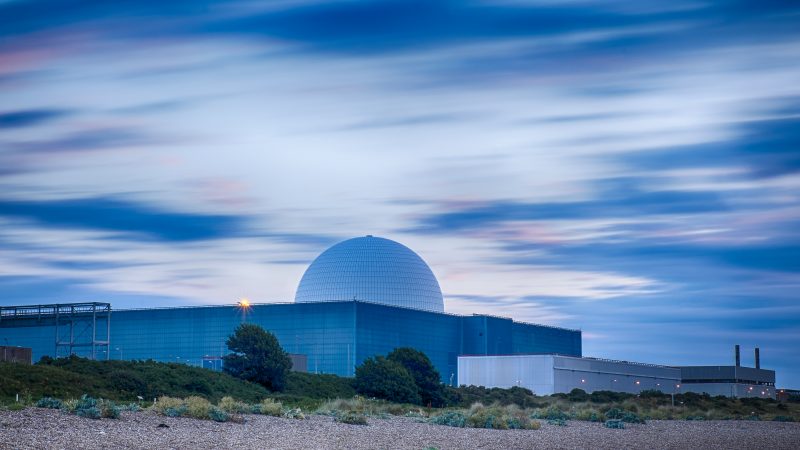
The focus for environmental and climate policy this week has rightly been the COP26 talks in Glasgow, where world leaders are making decisions that will quite literally determine the future of our planet. But while grand commitments made on the world stage are essential, and very media-friendly, the gritty detail of the policies needed to achieve them are often less glamorous and receive far fewer column inches.
Very few members of the public will have noticed parliament’s decision to back the nuclear energy (financing) bill this week, and even fewer will know the detail of what it means, and yet in a week dominated by climate news, this is actually one of the most important developments. Labour’s decision to back the piece of government legislation may also go under the radar, but is an important signal that the party is serious about a green industrial strategy and understands the vital importance of forging cross-party unity on core net zero policies.
The simple reality is that we need nuclear energy if we are going to achieve our net zero goals. The Climate Change Committee’s ‘balanced pathway’ envisions UK electricity demand soaring from 300TWh per year to 610TWh per year by 2050, largely because of anticipated progress on electrifying transport (through electric cars) and using electricity to heat our homes. While the vast majority of that increase will come from renewables, it is incredibly difficult and risky to build an entire energy system on renewables without having any ‘firm’ power – i.e. generation that is always on and not dependent on factors like the weather. This is where nuclear comes in, providing the steady low carbon energy that helps to balance our future electricity supply.
The problem is that almost all of our existing nuclear power generation is coming offline in the coming years, and we currently only have one new power station under construction at Hinkley Point C in the South West. Even on a conservative estimate, we need at least two more large scale nuclear power stations beyond Hinkley C to reach our net zero goals.
Successive Conservative governments have dithered and delayed on nuclear, putting the whole sector at risk. If there is too big a gap between old stations going offline and new stations coming on, then it not only creates a huge hole in our energy supply (that has to be filled either by burning more gas or by expensive imports from Europe), it risks the future of our world-class nuclear workforce who cannot be expected to twiddle their thumbs for years. The delay is already causing problems, with Prospect and Unite currently battling to save hundreds of jobs at Springfields Nuclear Fuels that are threatened by the yawning nuclear gap.
After years of union campaigning, the government have finally come up with a solution of how to fund new nuclear power in the only way that is practicable – a partnership between the public and private sectors. The idea that such vast projects of strategic national importance should be left to the free market alone was always a nonsense and led to the collapse of multiple proposed projects and years of pointless delay. The new model, known as the Regulated Asset Base (RAB) ensures that the costs are fairly balanced and risk is shared between different partners. Prospect and other unions such as Unite and GMB have been calling for sensible funding solution for nuclear for years, and it is welcome that the government have finally got with the programme.
Labour’s decision to back this bill is also highly significant. While decarbonisation will always and rightly be a topic for political debate, it is also essential that some consensus can be found, especially when it comes to large-scale infrastructure projects that span parliaments. If every funding model is put in question every time a new government comes in, it will only delay the action we need. There is also a job of work to be done for the party in repairing and rebuilding relationships with the nuclear workforce and nuclear communities. Labour’s perceived ambivalence towards nuclear power has been a factor in the recent loss of seats such as Workington, Barrow and Furness, Ynys Môn and Hartlepool. In fact, following the Hartlepool by-election loss, there are now no nuclear power stations represented by Labour MPs.
There is still much to do on nuclear. While the funding formula may be agreed, we still need to push the government to go further and faster. We need to keep up the pressure to secure multiple new build sites this parliament, rather than the one that the government has committed to. And workers like those at Springfields need guarantees about their futures in the industry. This is all fertile ground for Labour to work with unions and rebuild relationships with nuclear communities. Perhaps the vote held this week can be the start of that process.



More from LabourList
NEC member warns of CLP ‘resentment’ over twinning and cut-off IT access
‘A black hole, CQC woes, prison crisis: Tories get taste of their own medicine’
Labour NEC elections: ‘Councillors must have a voice and be listened to’